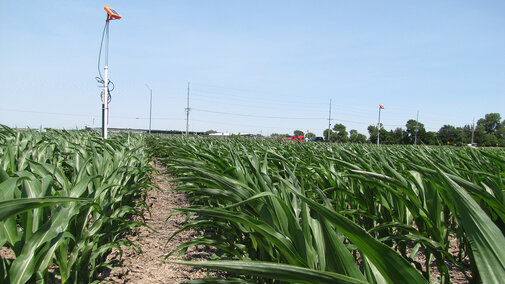Growers achieving top efficiency and profitability in corn and sorghum production as part of the UNL TAPS (University of Nebraska-Lincoln Testing Ag Performance Solutions) Farm Management Competition in 2018 have been announced.
Awards were given for the top “farms” in three categories: greatest grain yield, highest input use efficiency, and most profitable farm in the sprinkler-irrigated corn and sorghum divisions. (See box.)
TAPS is a farm management competition bringing together scientists, producers, industry professionals, and students to promote efficiency and profitability. Developed by University of Nebraska-Lincoln research and extension specialists and educators, TAPS just finished its second year and will begin a new competition in March.
In 2018 the competition, held at the university’s West Central Research and Extension Center at North Platte, expanded from the pilot sprinkler-irrigated corn program to include a sprinkler-irrigated sorghum competition. The corn contest had 20 participating teams and the sorghum contest had eight teams with participants from Nebraska and Kansas representing 12 Nebraska Natural Resource Districts (NRDs) and two Kansas Groundwater Management Districts. Expanding the program allowed for the inclusion of new and returning producer teams, as well as non-producer teams.
How it Works
Each team is randomly assigned a set of three experiment-sized plots, totaling about one-half acre. The yields and costs from each “farm” are amplified to represent 3,000 harvested acres for the corn competition and 1,000 harvested acres for the sorghum competition, which is more representative of a modern farm size. Participants had control over six parameters:
- irrigation management,
- nitrogen management,
- hybrid selection,
- seeding rate,
- grain marketing and
- crop insurance.
All other management decisions were fixed by the University and were the same for all plots.
The 2018 competition began in March with a meeting to review the rules and regulations. Planting occurred on May 1 and May 24 for corn and sorghum, respectively. The crops reached physiological maturity on September 29 and October 10 and were harvested on October 23 and November 14, respectively. A formal field tour and barbecue were hosted for contestants in late June. The competition officially ended on November 15 for corn and November 22 for sorghum, the final days for contestants to market their grain.
The West Central Water and Crops Field Day on August 23 featured the TAPS program in a grower panel and breakout sessions with the 2017 competition winners. One of the greatest benefits of the TAPS program is that it encourages a peer-to-peer exchange of ideas and innovation. The winners of past years, as well as other competitors, were invited to serve as speakers and/or be part of the growers panel at the annual field day.
Participating in 2019
The 2019 program will start in March with a meeting at the West Central Research and Extension Center in North Platte. The competition will feature the sprinkler-irrigated corn and sorghum contests, as well as a new subsurface drip irrigation (SDI) corn competition. The SDI system was designed and is being installed at the WCREC by Eco-Drip Irrigation Systems Inc. The SDI competition will give participants, educators, and industry leaders an insight into how this technology can improve irrigation efficiency by delivering water straight to the crop’s roots.
For more information on participating in the competition or sponsoring the event, please contact Krystle Rhoades, TAPS program coordinator, at krystle.rhoades@unl.edu.
And the Winners Were …
In December, results were shared and awards were presented for the top 2018 UNL TAPS competitors in several divisions.
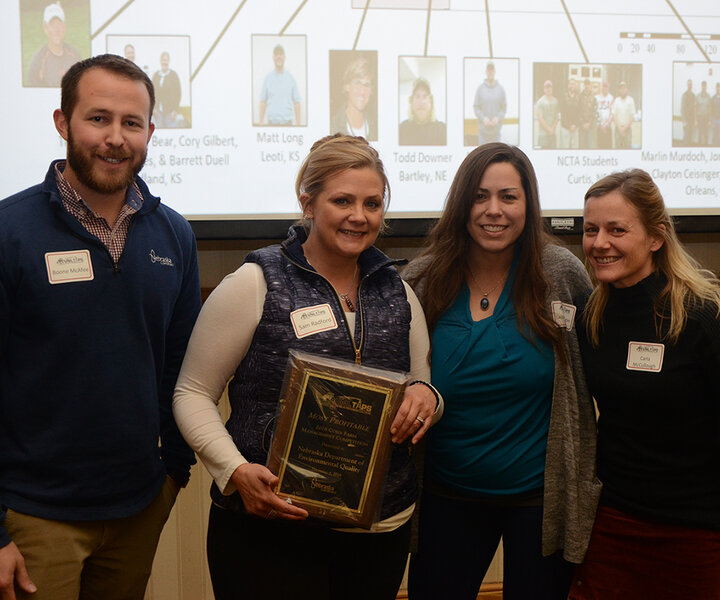
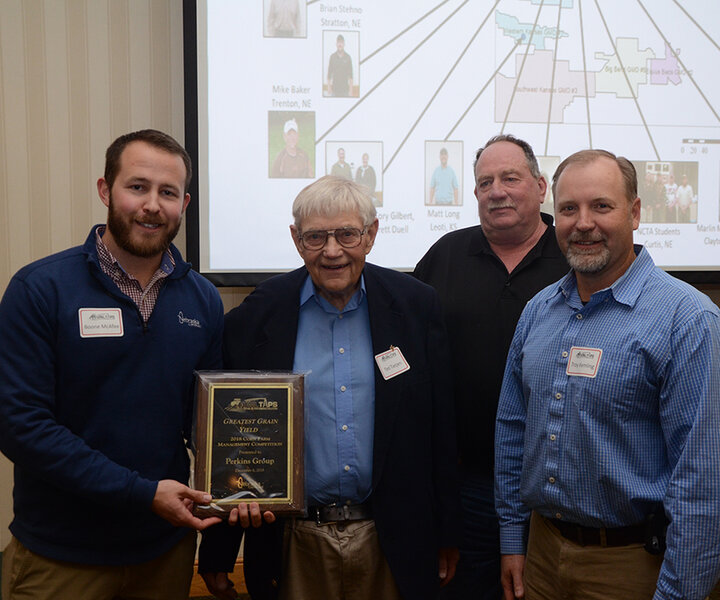
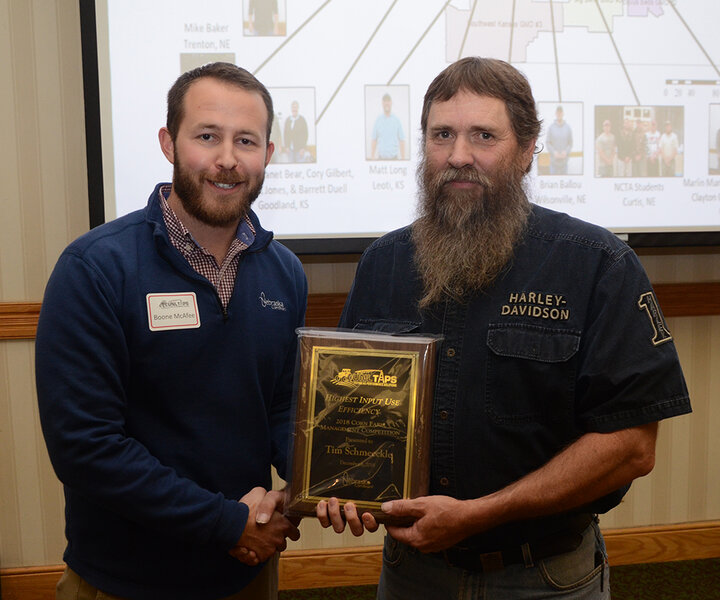
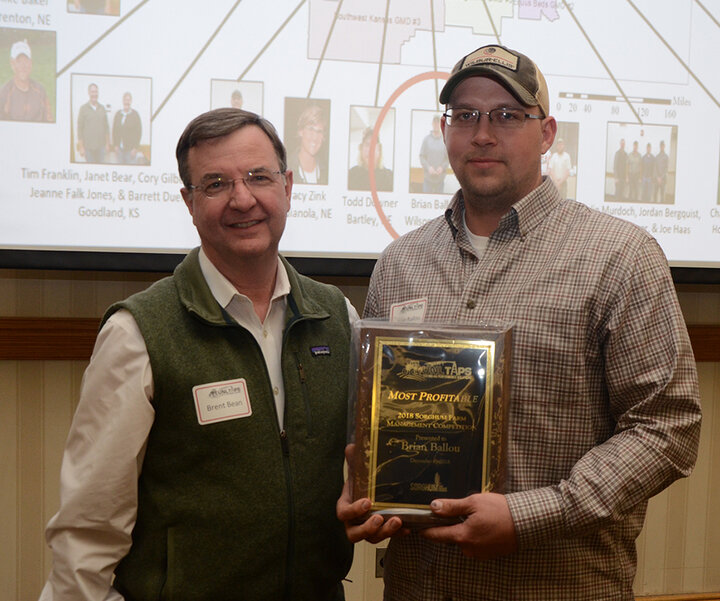
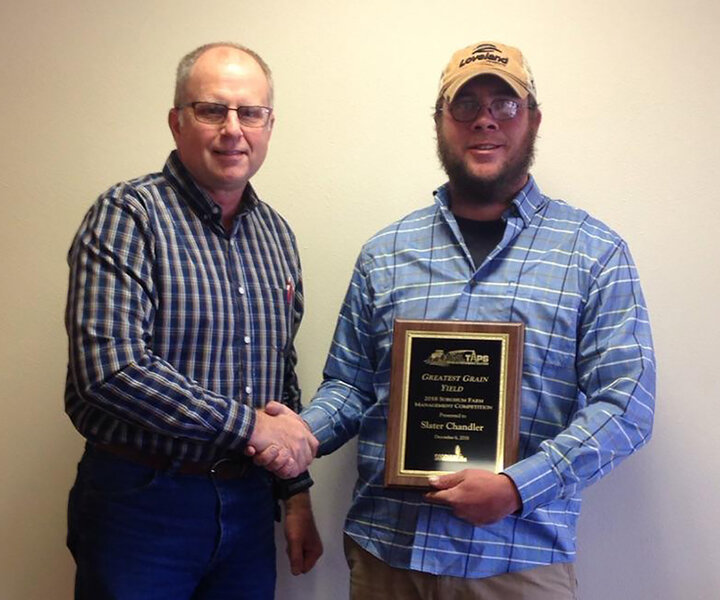
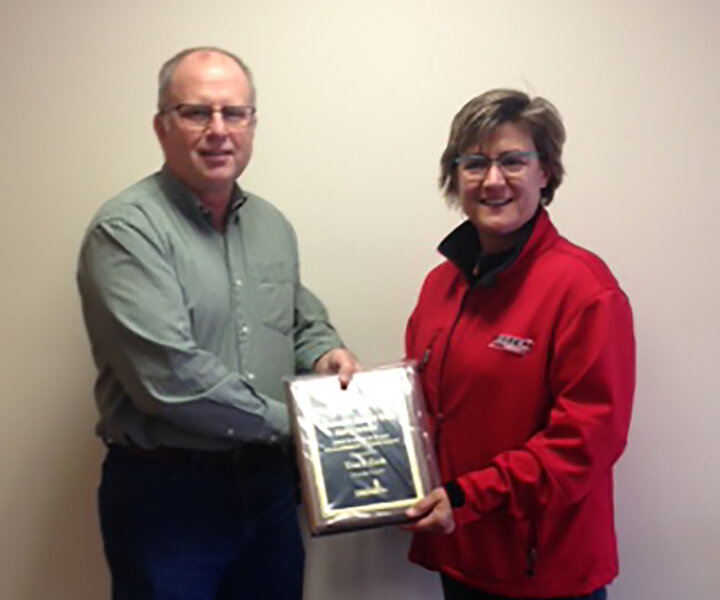
Corn
Most Profitable Farm ― the Nebraska Department of Environmental Quality (NDEQ) team from Lincoln.
Greatest Grain Yield ― the Perkins Group of Ted Tietjen, Shawn Turner, Ron Hagan, Rick Salsman, Bruce Young, Jim Kemling, Troy Kemling, Curt Richmond, Bill Richmond, and Brent Gloy from Grant.
Input Use Efficiency ― Tim Schmeeckle of Gothenburg, winning for the second year in a row.
Schmeeckle admitted that he “did like I do at home,” using soil probe and aerial imagery technology. “I looked at the data every week” before making decisions. Schmeeckle also had the second highest yield in this year’s competition.
This was the first year that the list of competitors included any government agencies. The NDEQ team said they really learned a lot about how complex farming decisions are. According to team member Sam Radford, the group’s philosophy was “to walk the walk in terms of how we managed nitrogen and thought about water quality in general.” Not being farmers themselves, the DEQ “used Aquaspy and Phytech the most because we were able to figure out how to use (these technologies) on our own,” Radford said. They also closely studied the 2017 competition results to develop their approach.
Sorghum
Most Profitable Farm ― Brian Ballou of Wilsonville
Greatest Grain Yield ― Slater Chandler from Imperial.
Highest Input Use Efficiency ― Tracy Zink of Indianola.
Ballou farms dryland sorghum on his own operation so growing irrigated sorghum was a new experience, one with “a huge learning curve,” he admitted. Ballou said he kept his approach in the competition “pretty straightforward,” trying to keep the inputs low and efficiency high.
The full 2018 Farm Management Competition Banquet Report can be found online at www.taps.unl.edu.
